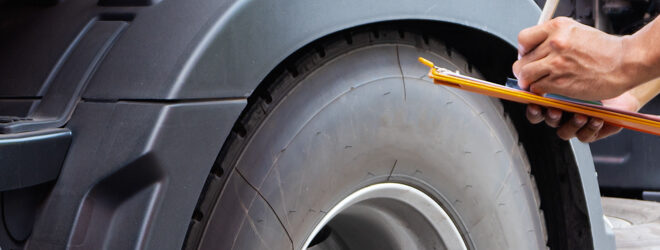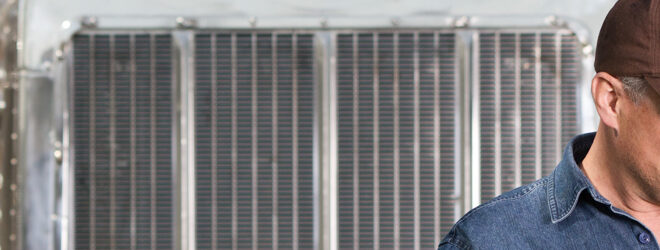Women in trucking has been an increasingly popular topic in the transportation and logistics industry over the past few years. During our recent Full Circle Appreciation Day event, we invited women from the industry to join our panel discussion so they could share their unique perspective and experience while exploring ways to promote the industry to a new generation of women. To go deeper on this topic, we spoke with Helen Thorpe, Corporate Training Lead at the Seaboard Transport Group, about her years of experience in the industry as a driver, dispatcher and trainer.
NBI: What got you interested in joining the transportation and logistics industry?
HT: In my previous jobs I was laid off 3 times in 2 years. After that I focused on finding a stable industry that could not only provide a decent wage, but also one that had potential for professional growth and personal development. Starting a new career in transportation and logistics met all of my criteria at the time.
Do you feel that women are treated differently in this industry? If so, how?
I don’t think they are treated differently. I don’t deny that there are drivers out there who think that women don’t belong in trucks, but luckily I find that they are few and far between these days. Or at least they are very quiet now. My overall experience has been positive. I feel that my fellow “brother truckers” have been supportive, helpful and respectful.
Why would you recommend a career in transportation and logistics to other women?
I would recommend a career in trucking because I know that transportation has many aspects, both on and off the road. At times it can be really challenging but also very rewarding. When I was a driver, I got immense satisfaction from moving a product or piece of equipment professionally and efficiently. As a dispatcher, completing a load and having both a happy driver and a satisfied customer is a real accomplishment. In my Safety and Training roles, imparting my experience and knowledge to a fleet of drivers and support staff is challenging. I like that I get the opportunity to wear many hats at the same time! I have to play the role of negotiator, counsellor and teacher.
What are some of the unique challenges that you face as a female truck driver?
The biggest challenges I experienced include: finding places I felt safe for parking overnight and clean washrooms. I’ve been in situations where I was told that there were no washrooms available for drivers—of either sex. Equipment is a non-issue. It is what it is. We can’t make trailers smaller or lighter; automated tarping machines or powered dolly-handles are ridiculously expensive and difficult to maintain.
Luckily there are plenty of different roles available within the industry. If a driver doesn’t have the body-mass to tarp or tie down a load, or has no appetite for heights, then that driver (male or female) can move to another area that doesn’t have the same challenge.
What could carriers do to attract more women to the industry?
First, I think they need to stop advertising strictly in industry publications. Place ads in mainstream media too! Reach out to schools, community colleges or organizations like Girl Guides to present the transportation industry as a viable career choice for women. Let women and girls know there’s more to the business than just driving the truck! Just like any industry, there are so many different facets to the business such as: operations, fleet maintenance, human resources, marketing and accounting.
I sometimes hear statements like, “automatic trucks make a female driver’s life easier” or “truck ergonomics designed for a woman” and that is a real problem to me. As a female driver, I take great pride in being able to drive all transmissions. Sure, the clutch is heavier than the one in a car, but it’s not impossible. If you can’t depress a clutch, I would question the driver’s overall fitness level, not blame it on being a particular sex. I feel that some of these statements are supposed to be female-friendly but they just come across as condescending. Most importantly making sure that there are washrooms, showers and other facilities available to female drivers/mechanics would be a great first step.
What is your favourite part about working as a trainer?
I enjoy getting the opportunity to play a sort of mentor role with employees while also making an impact on the company on a larger scale. When new employees join, I am able to welcome them to the company and impart my knowledge to new drivers. I encourage them to succeed and to be safe at the same time. I love getting feedback from drivers I have trained, whether they are succeeding at a new skill we require—like liquid bulk transport—or just stopping by to tell me “thank you for teaching me and helping me”. Developing new training programs or modules and seeing how they get adopted into the company’s culture and procedures is also a really great part of my role.
What would you be doing if you hadn’t started a career in transportation and logistics?
I really don’t know. I’d probably be working either in photography, or as a manager in the hospitality industry. Once diesel gets in the blood, it is very hard to get it back out again!
For more information and tips on the logistics industry and women in trucking, stay tuned to our blog.



